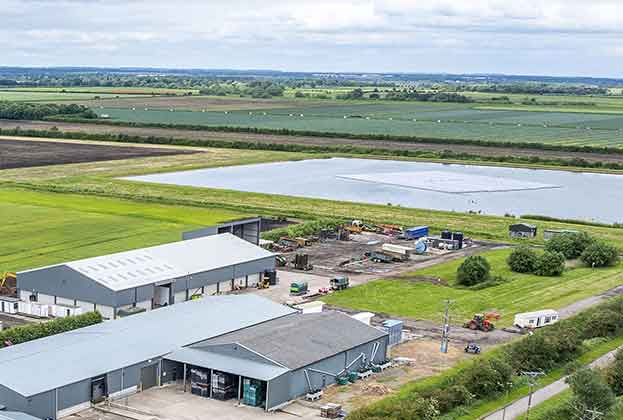As this year’s Earth Day approaches we have been giving some thought to resilience and how the real estate sector can better adapt to climate change by including these types of considerations into existing business continuity plans – particularly important as this kind of environmental threat becomes increasingly real.
More and more we are seeing the environmental impact of our actions. TV documentaries such as Blue Planet have been instrumental in raising awareness of issues such as plastic pollution, while social media and 24-hour reporting have left no escape from the recent catastrophic natural disasters caused by global warming. What’s more, the UN’s establishment of the 2015 Paris Agreement, which deals with greenhouse gas emissions mitigation, adaptation and finance, alongside the creation of industry benchmarks such as the Global Real Estate Sustainability Benchmark (GRESB) formed in 2009, have pushed the topic up the corporate agenda. This is why having a sustainability centred business plan is no longer an option – it is a necessity.
So what does a sustainability centred business plan involve? Primarily focused on resilience, it is, for the most part, a safeguard against the planet’s increasing unpredictability, creating systems of prevention and recovery to deal with these possible threats. With this in mind, how do you build resilience with respect to climate change into a business’s operations?
One example is the British Standards Institution (BSI), in partnership with Climate Ready’s practical guide to helping business continuity professionals understand and manage severe weather risks as part of their existing management system. In addition, there is the more formalised ISO22301 Business Continuity certification route that can help businesses to understand how to manage incidents directly linked to climate change, such as flooding, drought, storm damage and extreme temperatures.
Ultimately the future sustainability of a business depends on assessing its resilience. From next year, industry benchmarks such as GRESB will be able to measure a company’s resilience, which can only be a good thing for maintaining a secure income and ensuring longevity of buildings into the future. This is important because the value of an asset is particularly vulnerable to factors linked to environmental challenges. For instance, changing resource landscapes, technological innovation and alterations in regulations in relation to climate change can all lead to the devaluation of a property. For this reason it’s becoming more important to demonstrate how firms can adapt to these environmental and social pressures.
For businesses, while cutting back on plastic and making an effort to recycle remains crucial to help save our planet, there is also a need to think bigger. Adapting to climate change and evolving environmental landscapes are likely to be key to survival, so there has never been a better time to incorporate a sustainability strategy that focuses on resilience into your business’s existing continuity plan.
Further information
Contact Environment and Sustainability
.jpg)
.jpg)







.jpg)
.jpg)